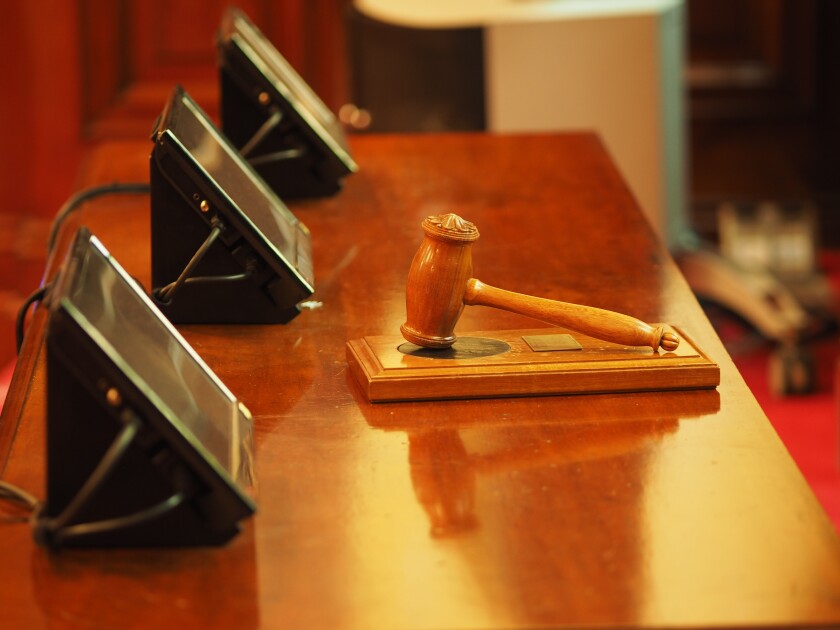The opening of the Unified Patent Court’s (UPC’s) doors in 2023 introduced significant procedural novelties for continental patent practitioners. One of these is the possibility of expert witness hearings, which is a practice rarely demonstrated across UPC member states. The Rules of Procedure of the Unified Patent Court (RoP) originally introduced the mechanism to reflect the procedural options available in the UK, when it was still envisaged to become a UPC member state, before Brexit.
In December 2024, the Nordic–Baltic Regional Division of the UPC hosted the first use of this procedural mechanism, in one of several proceedings between Dexcom and Abbott, two market-leading medical device manufacturers. The case provides valuable insights into how expert witness hearings might shape future European patent litigation under the UPC framework.
Dexcom versus Abbott: an overview
Abbott and Dexcom were involved in a global dispute featuring a considerable number of patents regarding glucose monitoring systems in various jurisdictions. As part of this dispute, Abbott initiated infringement proceedings before the Nordic–Baltic Regional Division of the UPC (the author was part of Dexcom’s litigation team in these proceedings). Dexcom, in turn, argued non-infringement and introduced a counterclaim for revocation of Abbott’s invoked patent.
Expert witness statements on technical issues were introduced by both parties in written form during the written phase of the proceedings. One party’s experts contradicted the experts of the opposing party – as is sometimes the case – which meant that an expert witness hearing may be appropriate, to test the authority of the respective experts’ arguments.
Expert witness hearings: is the UPC up to the task?
Article 53 of the Agreement on a Unified Patent Court underscores the court’s authority to consider all relevant evidence, including (expert) witness testimony. This is also enshrined in the RoP; according to which, the court may hear experts nominated by the parties (Rule 181, RoP) or appointed by the court (Rule 185, v). Such procedural flexibility may enhance the court’s ability to handle technically complex cases, which is a hallmark of patent litigation.
In most of the national courts in continental Europe, expert evidence is often submitted in written form and cross-examination is limited, while the practice of live testimony aligns more closely with common law traditions which offers judges the opportunity to observe, and assess the credibility of, experts in person.
The UPC’s framework also allows for live testimony and direct (cross-)examination (Rule 178(5), RoP). However, the RoP do not permit a line of questioning that is not designed to adduce admissible evidence.
The Nordic–Baltic Regional Division covers Estonia, Latvia, Lithuania, and Sweden. Swedish national procedure already provides for the possibility of expert hearings, aligning with some aspects of the UPC framework, which meant that the Swedish presiding judge already had experience with live witness testimony.
The Nordic–Baltic Regional Division’s approach
Under Rule 181(2) of the RoP, party-nominated experts are obliged to provide objective and impartial assistance to the court, which overrides their duty to the party retaining them. The experts are also under oath to provide their opinions truthfully.
The four experts in the above case presented their analyses during a dedicated hearing, which spanned a single day. Direct examination (evidence in chief) allowed each party to highlight key aspects of their technical arguments, while cross-examination enabled opposing counsel to test the robustness of the experts’ conclusions. Judges actively participated by posing clarifying questions, with the technically qualified judge taking a leading role in addressing the technical subject matter.
The division emphasised procedural efficiency by setting strict time limits for each stage of the hearing, which resulted in 20 minutes per round, per expert. This restriction forced the parties to focus on key issues that were instrumental to their case.
Key takeaways from the hearing
The proceedings highlighted several benefits and challenges associated with expert witness hearings at the UPC.
Expert witness testimony is particularly helpful in resolving contentious technical arguments when there are irreconcilable differences between expert opinions. By allowing parties to present and cross-examine experts, the UPC facilitates a more thorough examination of conflicting technical evidence.
However, the RoP provide little guidance on the practical aspects of conducting expert witness hearings. Therefore, parties and their counsel would benefit from considering and proposing a procedural scheme under which the hearing can be effectively managed.
The opportunity to interact directly with experts allowed the judges to gain a deeper understanding of the disputed technologies. Indeed, the dispute between the parties was settled before the Nordic–Baltic Regional Division could hand down a decision indicating the perceived usefulness of the expert witness hearing.
Significance of the proceedings for IP practitioners and judges, and the UPC
The Abbott versus Dexcom proceedings at the Nordic–Baltic Regional Division mark a pivotal moment in the early history of the UPC.
As this procedural mechanism becomes more widely utilised, practitioners and judges will need to develop best practices for selecting experts, managing hearings, and ensuring that technical evidence is presented clearly and efficiently.
By embracing the potential of expert witness hearings, the UPC has demonstrated its commitment to delivering informed and balanced decisions in technically complex cases. While challenges remain, this procedural innovation has the potential to enhance the quality and credibility of patent litigation across the UPC territory.












